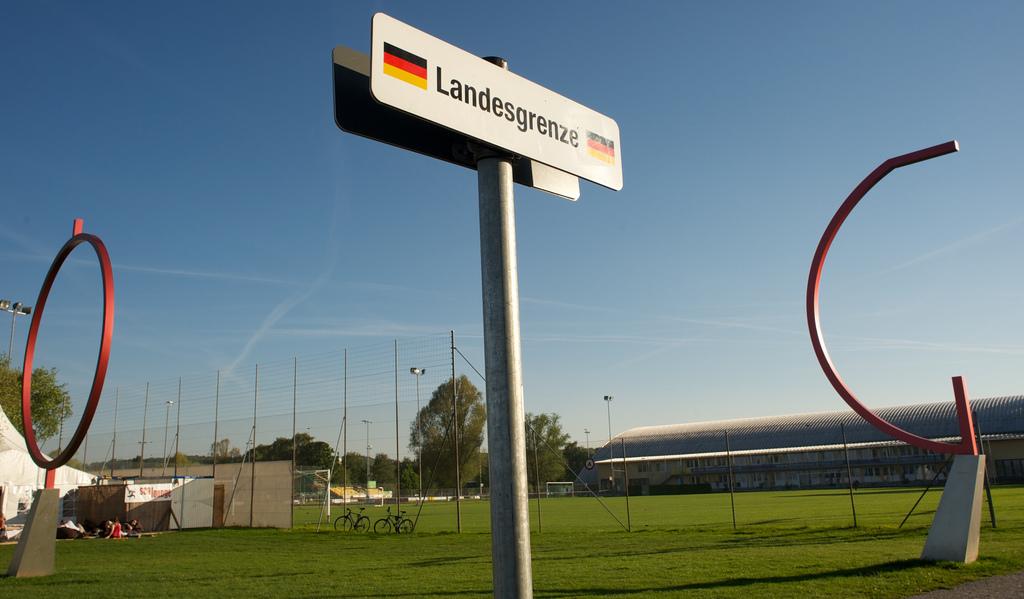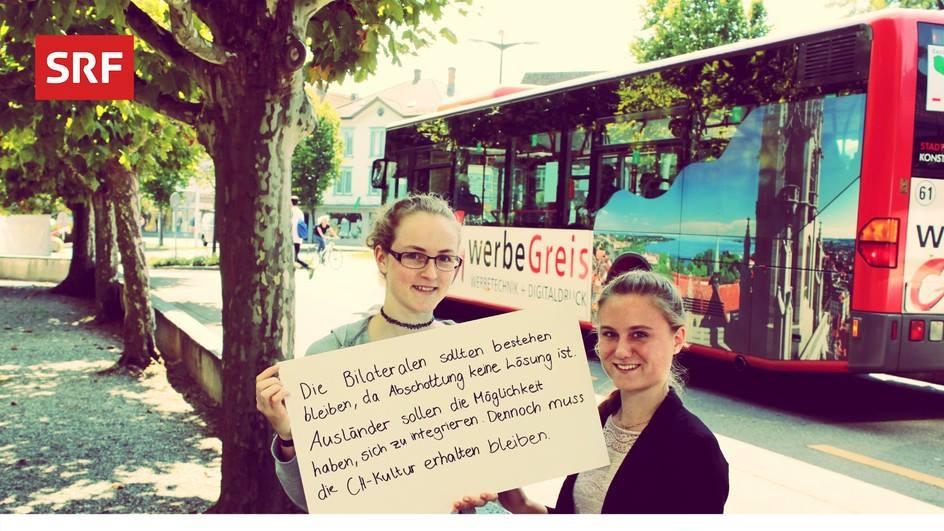
The Swiss need Europe, but does Europe need them?

Most respondents to a poll on Swiss-European ties say that Switzerland clearly depends on the rest of the continent. The survey comes at a time when Switzerland’s political ties to Europe are at a difficult crossroads.
Europe’s troubles of recent years have not led to fewer people identifying themselves as European. To the contrary, the figure rose to 67% over a 12-month period ending in July, according to the latest Eurobarometer studyExternal link.
In Switzerland though, feeling “European” is a more complex question, given that the country is surrounded by the EU bloc but not a part of it.
When asked whether they felt like a part of Europe, about 49% of Swiss users of the politbox election quiz app said that they did, in some sense. Those that replied with a ‘no’ still said they understood the need to maintain close ties. The figure rose to 55% in the affirmative when asked “does Switzerland need Europe?”
Swiss-EU relations have been regulated by a complex series of bilateral accords covering everything from public procurement to overland transport and the Schengen / Dublin treaties on border controls and asylum applications.
However it’s the bilateral agreement enabling the free movement of people that has soured Swiss-EU relations. In February 2014, Swiss voters decided to force the government’s hand, demanding the re-introduction of quotas for foreign workers, regardless of their country of origin.
Halfway to the February 2017 deadline for implementation, negotiations have not gotten very far. The unresolved issue has kept it at the forefront of the political debate – and on people’s minds.
This pair of young people, interviewed by the politbox team and Swiss Public Television SRF in Kreuzlingen, near the border with Germany, felt “the bilateral agreements should stay, since isolation is no solution. Foreigners should have the opportunity to integrate. But Swiss culture must be preserved.”

At a meeting of the European Youth ParliamentExternal link in Bern recently, 20-year-old Lukas Siegfried, who’s from Switzerland, summed up the challenging Swiss-EU relationship.
“I don’t think Switzerland has the right to think of itself as an island, in an egoistic way, profiting from the European Union but not joining them. We benefit from them, but they don’t benefit from us.”
However, Switzerland does not have many carrots to offer in talks with Brussels. For example, the EU is interested in an additional agreement on electricity, but it doesn’t need the Swiss to make it happen. Negotiations over keeping access to research funding and student exchange programmes are also decidedly one-sided, with the stakes much higher for the Swiss.
Going forward, the Swiss government is relying on the fact that neighbouring Germany, Italy, France and Austria “have interests that they will defend,” as Economics Minister Johann Schneider-Ammann recently put it, which are often the same as or related to Switzerland’s interests. Specifically, Schneider-Ammann cited the hundreds of thousands of cross-border workers who live in neighbouring countries but commute to Switzerland to work.
Most recently, the government appointed a special envoy, Jacques de Watteville, to take charge and bring “new perspectives” to the proceedings, as Foreign Minister Didier Burkhalter put it.
But “the starting point is difficult, and remains difficult,” said Swiss President Simonetta Sommaruga last week at a joint press conference with Angela Merkel, when the German leader visited Bern.
Merkel agreed that “some problems remain to be solved” in the bilateral relations between the countries, referring to the question of the immigration quotas. But she was also optimistic.
“We share fundamental priorities and principles,” Merkel pointed out when receiving an honorary doctoral degree at the University of Bern on September 3. “And some of the elements of the EU rulebook are also applied in Switzerland.”

In compliance with the JTI standards
More: SWI swissinfo.ch certified by the Journalism Trust Initiative





























You can find an overview of ongoing debates with our journalists here . Please join us!
If you want to start a conversation about a topic raised in this article or want to report factual errors, email us at english@swissinfo.ch.